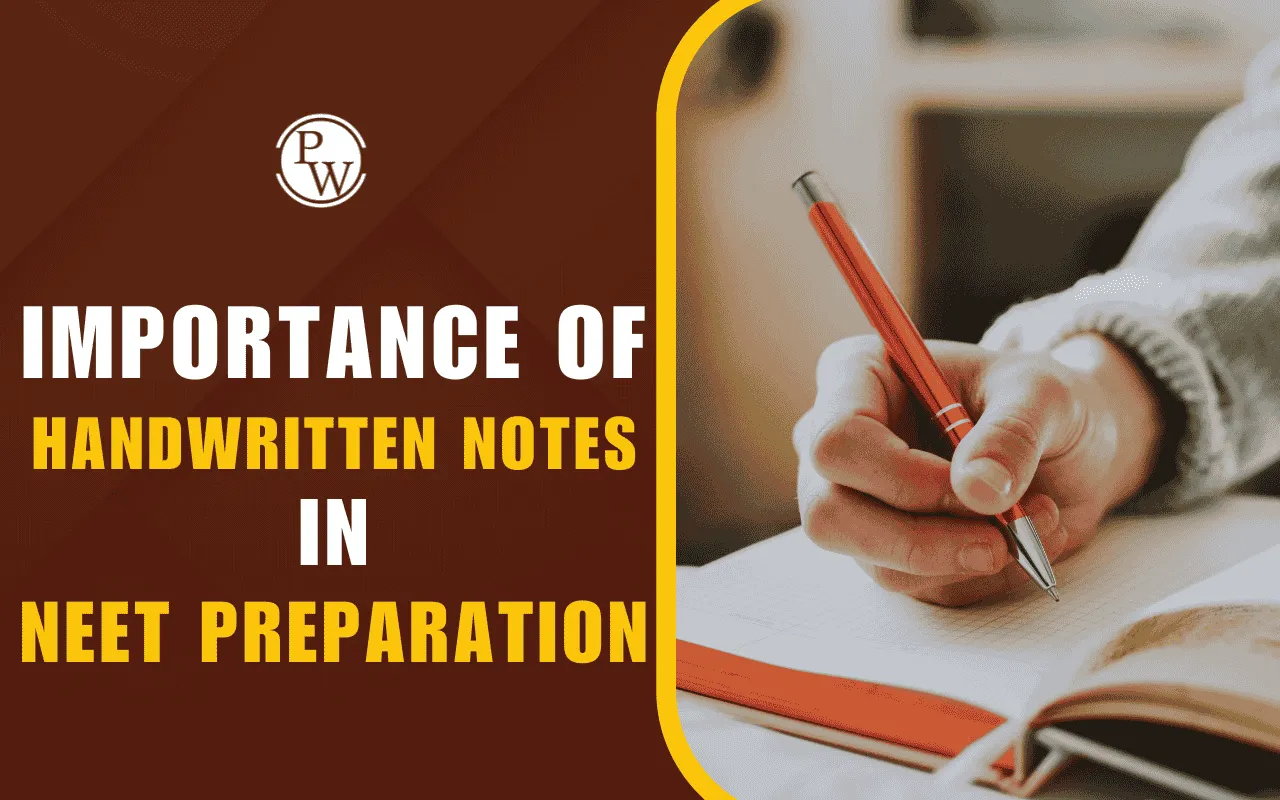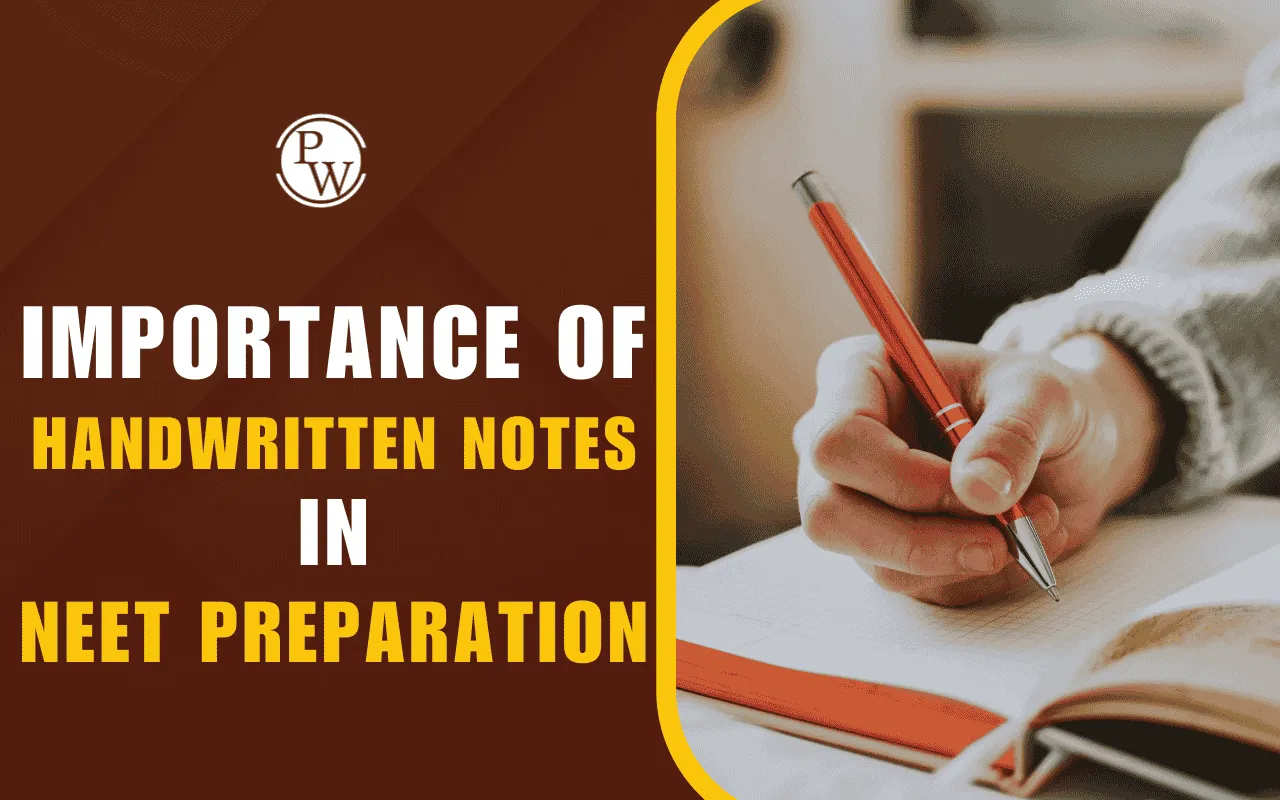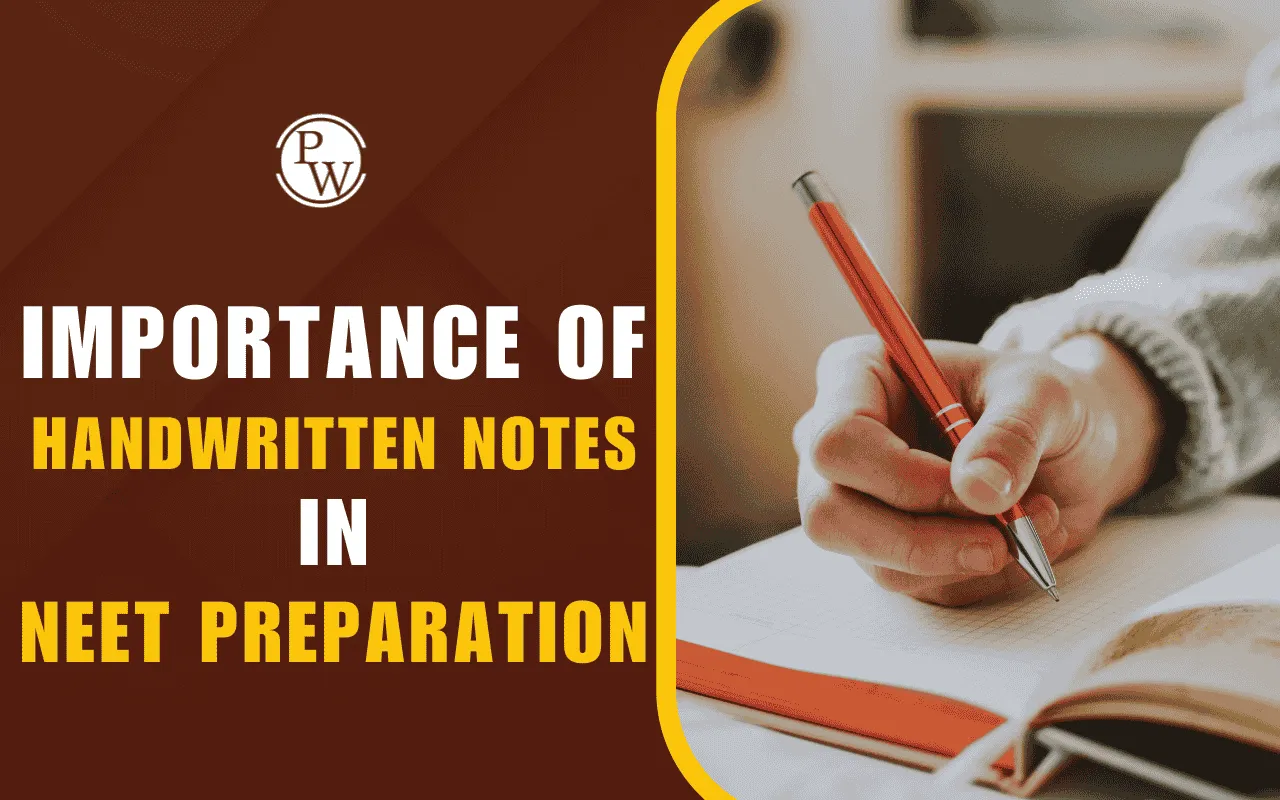

Handwritten notes play a major role in NEET preparation, helping students understand concepts better, retain information longer, and revise faster before the exam. When NEET aspirants write concepts in their own words, learning becomes more active, simpler, and long-lasting.
This guide explains the complete importance of handwritten notes in NEET, along with easy techniques NEET students can use to create clear, effective, and revision-friendly handwritten notes.
Importance of Handwritten Notes in NEET Preparation – Overview
Handwritten notes are very helpful in NEET preparation. They make learning simple and easy. When you write with your hand, your brain remembers things more quickly. You also understand things better because you are not just reading, but also thinking while writing. When you write your notes, you pick only the most important parts. You learn to leave out the extra stuff. This helps you to focus on what really matters in NEET. Writing also helps you stay active. It is not like just reading a book where you may feel sleepy. When you write, your mind is fully working.
During revision, handwritten notes save a lot of time. You do not have to open big books. You just open your notes and quickly go through all chapters. This is very useful before the exam. Also, handwritten notes are made in your own words. So, you understand them better than printed notes. You also remember where you wrote which point. This helps during last-minute study.
NEET Previous Year Question Papers (2020-2024) PDF with Solution
Last 5 Years NEET PYQs
Strategies to Make Handwritten Notes in NEET Preparation
Making handwritten notes for NEET is not hard. You just need to follow a few simple ways to make your notes easy to read and helpful for revision. You don’t have to copy full chapters. Just focus on important ideas.
-
Understand before writing: First, read the chapter from your NCERT book or listen to your teacher in class. Do not start writing at once. Try to understand the topic clearly. Once you understand it, start writing notes in your own simple words.
-
Write short and clear sentences: Don’t copy full paragraphs from the book. Write short lines that explain the main idea. Use easy words that you can understand quickly when you revise.
-
Use proper headings and subheadings: Divide your notes into small parts. For example, in Biology, if the chapter is “Respiration in Plants,” make subheadings like Glycolysis, Krebs Cycle, and Electron Transport Chain. This helps you revise part by part.
-
Include NCERT important lines: Some lines in the NCERT book are very important for NEET. Write these lines exactly as they are. You can underline or highlight them in your notes so they stand out during revision.
-
Draw neat diagrams and flowcharts: In Biology and Chemistry, diagrams are very helpful. Draw them neatly and label them properly. Use flowcharts to explain processes like digestion, circulation, or respiration for easy learning.
-
Write formulas, reactions, and laws: For Chemistry, write chemical reactions and formulas clearly. For Physics, write all formulas and laws with proper units. You can also write one or two solved examples below each formula.
-
Use limited colors for highlighting: You can use one color for headings and another for important points. Avoid using too many color pens or highlighters as it can make the page look messy.
-
Write on one side of the page: If you write on one side of the notebook, you can use the other side later to add more points, doubts, or extra questions that you find later.
-
Organize notes by chapters: Keep a separate notebook or file for each subject. Write the chapter name at the top of each page. This helps in easy revision during exam time.
-
Make notes on the same day: After studying a chapter, make your notes on the same day. This helps you remember the topic better. If you wait for many days, you may forget what you studied.
-
Revise notes regularly: Don’t just make notes and keep them. Read them every week to keep the topics fresh in your memory. Make a small timetable to revise 2–3 chapters every week.
-
Add extra points later: During mock tests or class tests, if you learn something new, go back to your notes and add it. Your notes should keep improving as you study more.
-
Make a mini revision notebook: Before the NEET exam, prepare a small notebook with only the most important formulas, reactions, diagrams, and key points. This will help in fast revision before the exam.
Prepare for NEET with PhysicsWallah's NEET online coaching. Learn through easy-to-understand lessons and get help whenever you need it.
Importance of Handwritten Notes in NEET Preparation FAQs
How to make handwritten notes for NEET?
Which notes are better handwritten or market notes?
Why are handwritten notes important for NEET?
Can I prepare for NEET without making notes?
Should I make notes for all chapters?
How much time should I spend on making notes?
How to revise from handwritten notes?
Can I use digital notes instead of handwritten notes?












